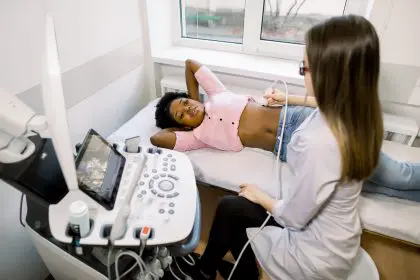Cancer is a formidable disease that can affect anyone at any age. Early detection is crucial for effective treatment and a better prognosis. However, recognizing the signs and symptoms of cancer can be challenging because they often mimic those of other less serious conditions. This article highlights seven critical signs that may indicate you are living with cancer and underscores the importance of getting tested.
Persistent fatigue
While feeling tired after a long day or due to lack of sleep is normal, persistent and unexplained fatigue that doesn’t improve with rest can be a sign of cancer. This type of fatigue is severe and often disrupts daily activities. It’s commonly associated with cancers like leukemia, colon cancer, and stomach cancer. If you experience chronic fatigue that lasts for weeks or months, it’s essential to consult a healthcare provider.
Unexplained weight loss
Losing weight without trying, especially a significant amount, can be alarming and may indicate cancer. Weight loss of 10 pounds or more, particularly if it happens quickly, can be associated with cancers of the pancreas, stomach, esophagus, or lung. The body burns more calories to combat the disease, leading to unexplained weight loss. If you notice a sudden drop in your weight without a change in diet or exercise, seek medical advice.
Changes in skin appearance
Changes in the skin can be a visible sign of cancer. This includes new growths, sores that do not heal, or changes in existing moles or warts. Skin cancer, such as melanoma, often presents as a change in the size, shape, or color of a mole. Additionally, jaundice (yellowing of the skin and eyes) can indicate liver or pancreatic cancer. Regularly check your skin for any unusual changes and consult a dermatologist if you notice anything suspicious.
Persistent pain
Pain that persists and cannot be explained by an injury or other condition may be a warning sign of cancer. For example, headaches that do not respond to treatment could be indicative of a brain tumor. Back pain might suggest ovarian cancer, while bone pain could be a sign of bone cancer. If you experience unexplained, ongoing pain in any part of your body, it is crucial to see a doctor for evaluation.
Changes in bowel or bladder habits
Significant changes in bowel or bladder habits can be a sign of colorectal, bladder, or prostate cancer. Symptoms to watch for include:
- Blood in the stool or urine
- Persistent diarrhea or constipation
- A feeling that the bowel does not empty completely
- Pain during urination or frequent urination
If you experience any of these symptoms for an extended period, it is essential to undergo medical testing.
Unusual bleeding or discharge
Unusual bleeding or discharge can be a sign of various types of cancer. For instance, coughing up blood may indicate lung cancer, while blood in the stool can be a sign of colorectal cancer. Postmenopausal bleeding or unusual vaginal discharge may suggest endometrial or cervical cancer. Blood in the urine could be a sign of bladder or kidney cancer. Any abnormal bleeding or discharge warrants a visit to a healthcare professional for further investigation.
Lumps or swelling
The presence of lumps or swelling that persist for more than a few weeks should not be ignored. This is particularly important for areas such as the breasts, testicles, lymph nodes, and soft tissues. While not all lumps are cancerous, they should be evaluated by a doctor to rule out the possibility of cancer. Regular self-examinations and routine medical check-ups can help detect these abnormalities early.
Conclusion: Recognizing the signs
Recognizing the signs and symptoms of cancer is the first step toward early detection and effective treatment. Persistent fatigue, unexplained weight loss, changes in skin appearance, persistent pain, changes in bowel or bladder habits, unusual bleeding or discharge, and lumps or swelling are all critical signs that should prompt immediate medical attention. If you experience any of these symptoms, do not delay in consulting a healthcare provider. Early detection can significantly improve the chances of successful treatment and a positive outcome. Remember, regular screenings and being aware of changes in your body are vital components of staying healthy and proactive in the fight against cancer.
By staying vigilant and responsive to your body’s signals, you can play a crucial role in identifying potential health issues early. This proactive approach not only aids in early diagnosis but also enhances the effectiveness of treatment options available. Encourage loved ones to be mindful of these signs and to seek medical advice if they notice any unusual changes. Together, awareness and timely action can make a significant difference in the battle against cancer. Prioritize your health by staying informed, attentive, and proactive. Early detection saves lives, and recognizing the signs is your first line of defense.
This story was created using AI technology.











